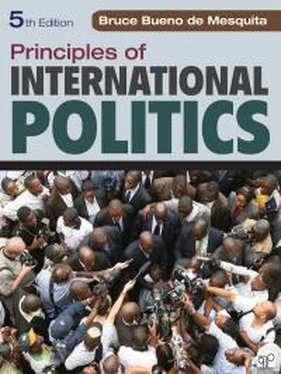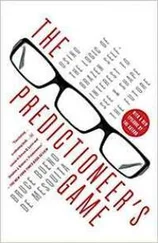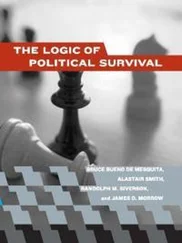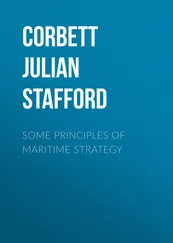Rationality, unfortunately, has taken on lots of colloquial meanings that have little to do with how I (and many others) use that term so let me lay out what rationality does not mean as I use the term and then explain what it does mean at least for me. An otherwise superb study by the historian H. A. Drake (2000) states concisely common misconceptions or caricatures of rational actor models—at least in the way that phrase is used by people who study politics or economics from a rational actor point of view. Drake writes the following:
In its purest form, the Rational Actor approach presumes that such a figure [as the Emperor Constantine about whom Drake wrote] has complete freedom of action to achieve goals that he or she has articulated through a careful process of rational analysis involving full and objective study of all pertinent information and alternatives. At the same time, it presumes that this central actor is so fully in control of the apparatus of government that a decision once made is as good as implemented. There are no staffs on which to rely, no constituencies to placate, no generals or governors to cajole. By attributing all decision making to one central figure who is always fully in control and who acts only after carefully weighing all options, the Rational Actor method allows scholars to filter out extraneous details and focus attention on central issues. (2000, 24)
Drake’s description highlights a fundamentally different view of rationality than the one taken here or adopted by many economists. For instance, Drake argues that to be rational one must undertake “analysis involving full and objective study of all pertinent information and alternatives ” [emphasis added]. Such a study would surely be irrational. A rational person, as thought of here, considers alternative courses of action only up to the point when they conclude that the expected cost of continued study of information and alternatives is equal to the expected benefit. If the cost of searching out more information is expected to exceed the benefits from such a search then it is time to stop searching. Just ask yourself, would you spend $1.00 to earn 25 cents or even 99 cents? Of course not! You are better off keeping your dollar than knowingly ending up with less. Naturally, you might spend a dollar to have a chance to earn extra money—that is part of why people buy lottery tickets or invest in education, like you are doing—but it doesn’t make sense to inflict costs on yourself when the value of the expected return is smaller to you than the cost.
Drake also portrays rationality as imposing the view that there is a solitary decision maker who decides what to do and who is completely free to ignore the views of advisers, constituents, and everybody else. This is equivalent to the common assumption that states are unitary actors with nothing pertinent going on inside their borders that might influence the choice of actions. To be sure, a rational actor does what he/she/it thinks best advances his/her/its interests, but for the sorts of problems we will learn about, a rational political actor is not free to choose without considering the consequences of those actions, including how others are expected to react. The fundamental problem for rational politicians is to work out what is the best action to take given not only their own preferences but their beliefs about the expected actions and desires of others, including friends and foes. We will see more carefully how important this distinction is when I introduce game theory in chapter 4 as a way to think about the strategic interplay that characterizes international affairs. Now, however, let’s define what is minimally required to say that a person is rational. These criteria will be applied throughout this book and can be usefully applied whether you are thinking about international politics, deciding where to have dinner with some friends, or doing something as mundane as buying a loaf of bread.
In its simplest, most minimalist form, rationality requires very few assumptions about how people make choices. Each chooser is assumed to have complete and transitive preferences and he or she acts on them. Completeness means that any individual faced with choices, say between alternatives x and y, can say “I prefer x to y” or “I prefer y to x” or “I am indifferent between x and y.” For example, every rational person who is asked to choose between spending an extra $1 billion on defense or on unemployment benefits can link these alternatives with a relation of preferences by saying, “I prefer to spend an extra $1 billion on defense over spending an extra $1 billion on unemployment benefits” or “I prefer to spend an extra $1 billion on unemployment benefits over spending an extra $1 billion on defense” or “I am equally happy to spend an extra $1 billion on defense or on unemployment benefits, I don’t favor one over the other.” “I prefer” is sometimes denoted as > and “I am indifferent” is denoted as ≈.
Transitivity adds one more burden to anyone who can be said to make rational decisions. Suppose a person is asked to choose between spending an extra $1 billion on defense or on unemployment benefits or on education (or, for that matter, not spending an extra $1 billion on anything). Completeness requires that our hypothetical rational individual can state preferences between each pair of these choices. Transitivity imposes a limitation on those preferences. In particular, if a person making a choice, let’s name her Ann, prefers spending $1 billion more on defense over unemployment benefits and prefers spending $1 billion more on unemployment benefits than on education, then transitivity requires that Ann prefers to spend $1 billion more on defense than on education. Using > to mean prefer, transitivity requires that for any choices x, y, and z, if for Ann, x > y and y > z then x > z. That’s a pretty minimal requirement that just asks people to have coherent preferences. Consider what can happen if this is not true.
Imagine that Ann is a lobbyist who has $60 million to spend on trying to influence Congress’s choice among policies x, y, or z. Furthermore, imagine that Ann has intransitive preferences so Ann’s preferences look like this: x > y > z > x. For the sake of argument, imagine that by spending $20 million on lobbying Ann can persuade enough members of Congress to switch their votes so that Ann can influence whether x, y, or z is chosen. At the time Ann becomes energized to try to influence Congress the existing congressional policy is y. Given that Ann wants x over y, we can see that Ann will happily spend $20 million of her $60 million lobbying budget to shift Congress’s policy away from y and to x. Now, with Congress prepared to vote for x, Ann realizes that she can and should spend $20 million of her remaining $40 million to convince the Congress to favor policy z over x since, after all, she likes z better than x ( z > x ). But seeing that z is about to become the new policy, Ann is unhappy. She doesn’t like z as much as she likes y ( y > z ). So Ann allocates $20 million, her entire remaining budget, to a lobbying effort to alter the congressional vote so that it favors y instead of z. Having launched a successful lobbying effort, Ann now finds herself just as unhappy with the Congress’s policy as she was at the start (remember she started by lobbying to switch the policy from y to x )—only now she has no money left with which to persuade Congress to switch from y to x. It is evident that with intransitive preferences, Ann will have spent her lobbying budget and will have accomplished absolutely nothing. Intransitive preferences make it impossible for a person to do what they believe is in their best interest because they do not have a coherently defined interest.
Читать дальше












